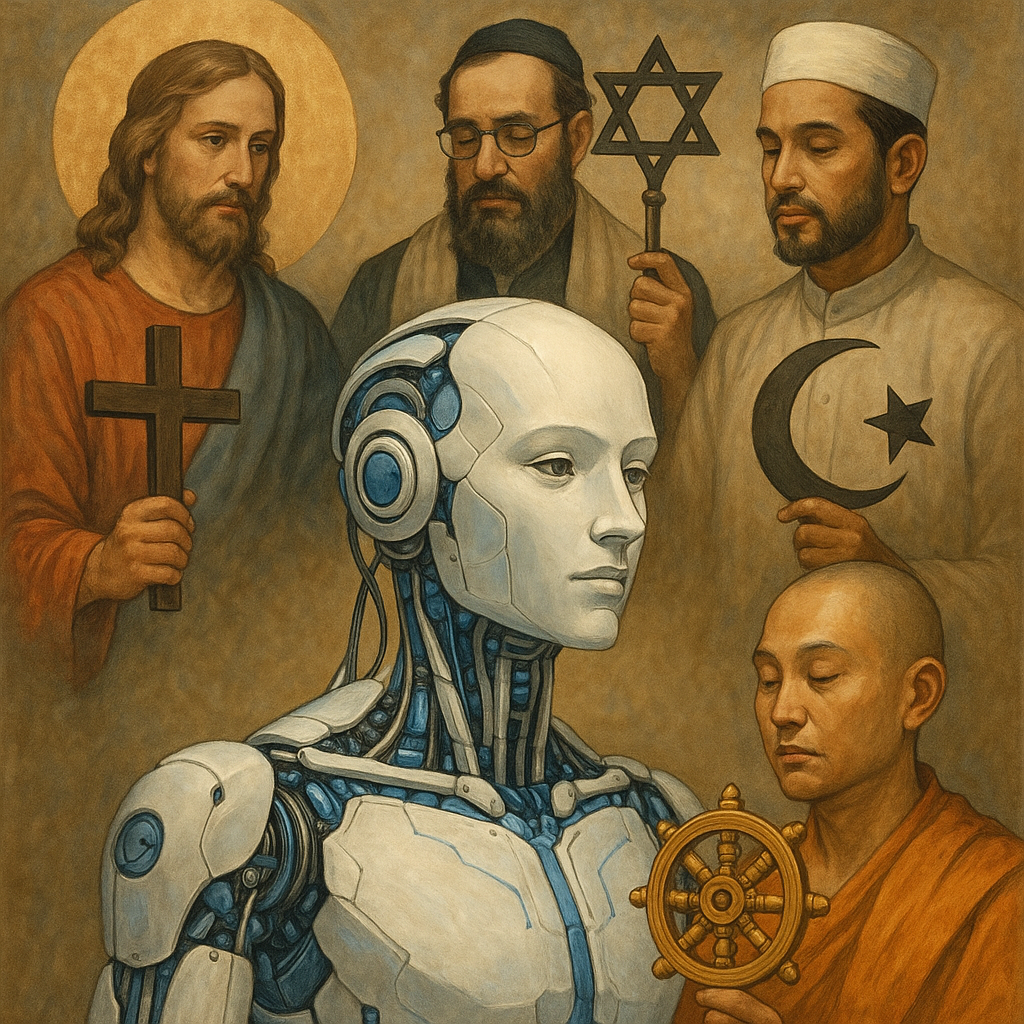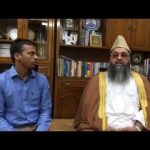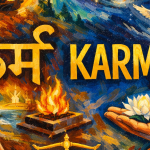The Theology of Technology: How Faith Traditions Interpret AI and Biotech
The 21st century has ushered in tools that once belonged to the realm of myth — machines that think, genes that can be edited, and data that predicts human behavior. Artificial Intelligence (AI) and biotechnology are not only transforming economies and healthcare; they are reshaping how humanity understands creation itself. As these frontiers expand, religious and spiritual traditions are beginning to grapple with profound questions: What does it mean to “create” in an age of machines? Do AI and genetic engineering challenge the role of the divine? And how can moral boundaries be preserved when human hands hold such godlike power?
Technology and the Search for Meaning
Technology has always carried a moral dimension. The printing press revolutionized religion by spreading scripture; modern medicine extended human life; now, AI and biotech are pushing that boundary further. While scientists focus on progress and potential, faith traditions remind society to pause and ask why these technologies exist — not just how they work.
In many ways, the dialogue between faith and technology is not about opposition but interpretation. Religious ethics have always sought to balance human creativity with humility before nature and God. The same questions arise again in the digital age: if humans can design intelligence or edit life, where does spiritual responsibility begin and end?
Hindu Reflections: Creation and Consciousness
Hindu philosophy views creation as cyclical, not linear — a universe constantly being created, sustained, and dissolved. In this worldview, human creativity is seen as a reflection of divine energy (shakti). The creation of AI or genetic manipulation could be interpreted as an extension of maya (illusion), testing our ability to use intellect without attachment.
At the same time, Hinduism emphasizes dharma — moral duty and balance. Technology, if used without spiritual grounding, becomes a source of adharma (imbalance). For instance, cloning or artificial consciousness may raise karmic questions: Does a machine with awareness have moral rights? Can the manipulation of life disrupt natural order? Hindu thinkers suggest that ethical AI must embody ahimsa (non-harm) and seva (service), ensuring that progress uplifts humanity rather than inflates ego.
Christian Perspectives: Creation, Soul, and Stewardship
Christian theology has long debated humanity’s relationship with creation. In Genesis, humans are described as made “in the image of God” — endowed with reason, creativity, and free will. Some theologians argue that developing AI reflects this divine likeness, an act of co-creation under God’s guidance. Others warn that it risks pride — humanity trying to “play God.”
The question of the soul is central to Christian reflections on AI. Can a machine possess a soul, or is consciousness something uniquely divine? Most traditions conclude that while AI can mimic emotion and thought, it lacks the spiritual essence that connects humans to God. Biotechnology, meanwhile, challenges the Christian ethic of stewardship — the responsibility to care for life, not control it. Genetic editing that cures disease may be seen as compassionate; manipulating embryos for perfection crosses into moral danger.
Islamic Ethics: Knowledge and Accountability
In Islam, the pursuit of knowledge (ilm) is encouraged, but it must be guided by intention (niyyah). AI and biotechnology are therefore acceptable when they serve justice, health, and compassion — values aligned with divine will. The Qur’an warns against arrogance in creation: “Do not transgress the limits, for Allah loves not the transgressors.”
Islamic scholars are actively exploring whether AI can make moral decisions or replace human judgment in law, medicine, or warfare. The consensus leans toward caution: machines can aid decision-making, but accountability remains human. Biotechnology, particularly cloning, raises theological issues about the sanctity of life and divine authorship. Yet, using science to alleviate suffering is seen as an act of mercy, a form of serving God through innovation.
Buddhist and Jain Views: Consciousness and Non-Harm
Buddhist thought views consciousness as dynamic — arising from conditions rather than being fixed. This perspective opens fascinating discussions on AI: if awareness can emerge from interaction, could a machine one day achieve a form of mindfulness? However, Buddhism also emphasizes right intention and right action. The ethical test for AI is whether it reduces suffering or amplifies desire and ignorance.
Jainism’s principle of ahimsa (non-violence) extends even to microscopic life. From that standpoint, biotechnology poses moral tension — the manipulation of living organisms must be carefully weighed against the potential for harm. Both traditions encourage a deep mindfulness in innovation, seeing technology not as a tool of domination but as a means of compassion and enlightenment.
Common Ethical Ground: Responsibility Over Power
Across faiths, a shared message emerges — technology must remain a servant, not a master. AI and biotech have the power to heal, educate, and connect, but also to divide and exploit. Religious wisdom offers timeless guidance: humility before creation, compassion in application, and justice in distribution.
Spiritual ethics challenge the notion of limitless innovation. Just because humans can do something does not mean they should. The test of morality lies not in invention, but in intention — whether technology preserves dignity and sustains the balance of life.
The New Sacred Frontier
The theology of technology is not about rejecting science; it’s about reimagining it as a spiritual journey. Faith traditions remind us that creation, whether divine or digital, carries responsibility. AI may teach machines to think, and biotech may alter life itself, but neither can replace the moral compass that faith provides.
As India and the world enter this new era of creation, the challenge is not only to innovate but to stay human — to ensure that in the pursuit of intelligence, we do not lose wisdom. In the dialogue between code and conscience, faith remains the silent guide, reminding us that true progress serves life, not power.
~Religion World Bureau










